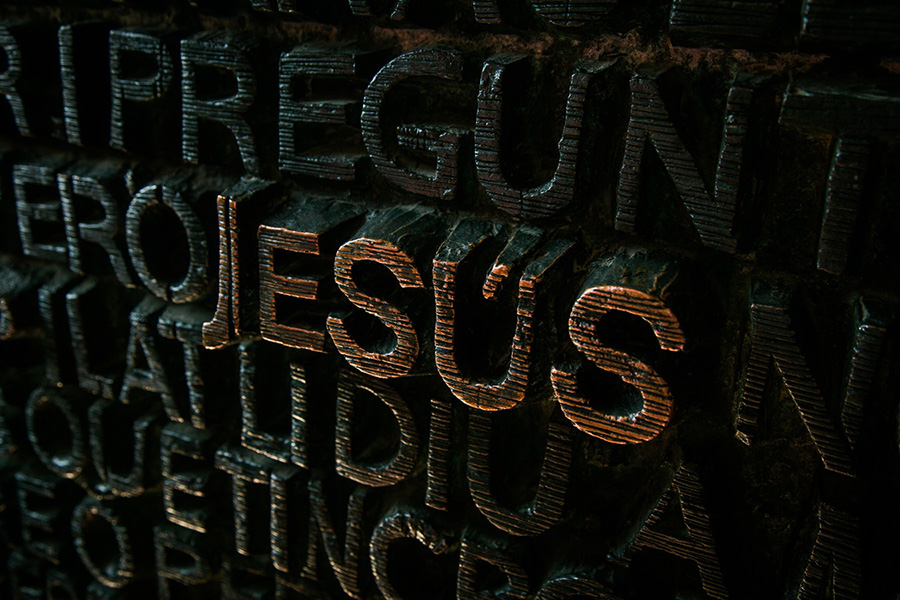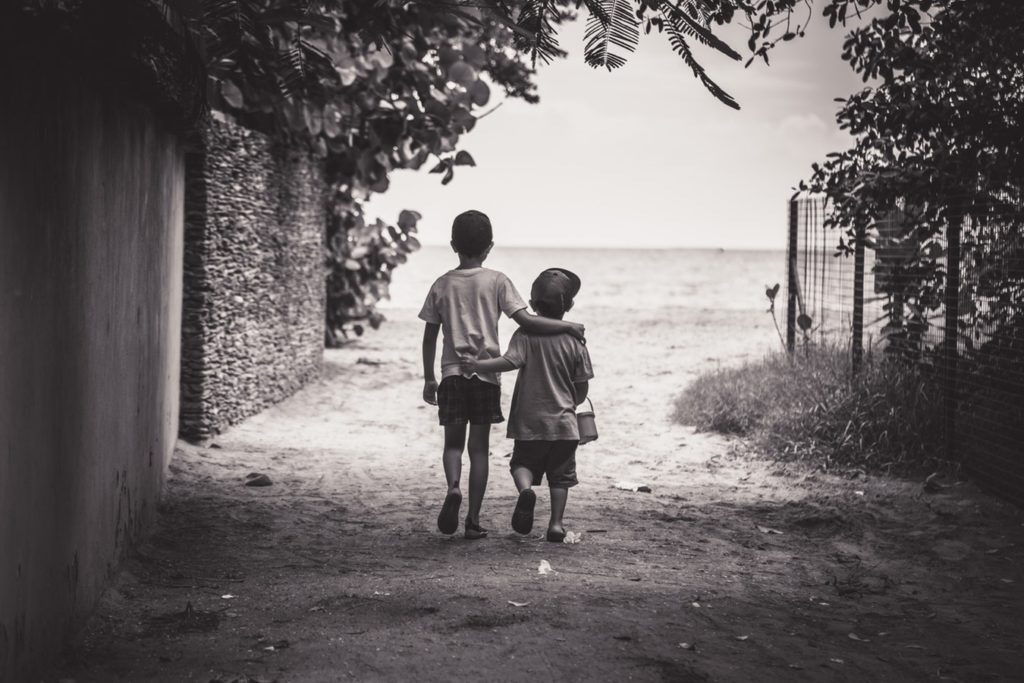The Rev. Canon Marianne W. Borg
Mark 6:30-34, 53-56
St. Thomas Episcopal Church
Dubois, WY
July 21, 2024
Jesus is a healer.
Whenever word got out that Jesus was near, people left their villages or cities or farms to come closer to him. And they brought the sick. To even touch the hem of his garment, the fringe of his cloak would bring about healing.
There was something about being near Jesus that made you feel whole. Regardless of your condition or situation, your physical or emotional state, regardless of how your social or political or religious world characterized you, there was something about Jesus that rearranged your sense of self. He even seemed to rearrange your molecules and set them aright.
And even though he sees right through you, like an x-ray, there is no shame or need for apology. To be seen by Jesus is actually a relief. To be seen and accepted, accepted just as you are is liberating and healing. Jesus is not to be looked upon as a judge. I know that a lot of our gospel stories say that he is, but I don’t believe that.
Jesus is able to reach across the divide, the divide that is within us and outside us.
“And all who touched even the fringe of his cloak were healed,” says our Gospel. There are some translations that say, “and all who touched even the fringe of his cloak were cured.”
I prefer the translation we heard today. Curing implies that the illness or injury or problem goes away and is not expected to return. I am all for cures. I pray for them. I storm heaven for them. I am sure you do too. But I prefer the word healing here. I think it addresses us more universally. Healing is for all of us without exception. Healing is a process of making or becoming sound or whole in the midst of our situation, our lot in life, our stage in life. Not everything can be cured or done away with. Not everyone can be cured. But everyone can be healed. We all have the opportunity to become sound or whole in the face of our limits and uncertainties, our vulnerabilities and mortality. We all have an opportunity to come to a different understanding of what we thought it meant to be whole in the first place.
But we tend to get restless, distracted, and instead of moving toward what it might be to be whole or sound, and self-accepting we spin off from being present and courageous and seeing possibilities, even when our situation is impossible. We find ourselves moralizing our illnesses as well as other people’s.
For example: We ask ourselves, “What did I do to cause this? Why did this happen to me? Where did I go wrong?” I understand these questions. But at a certain point they are not helpful. Or when seeing a person we know, we might say something like, “I knew she always swallowed her anger, no wonder she got…..” or whatever….
I wonder if we do this because it is what we have been taught, which is to put illness and mortality in the category of sin. You remember Job’s friends? As Job was incurring illness and misfortune, one damn thing after another, his friends said, come on, Job, fess up, there must be sin in the camp; repent already. Job’s misfortunes were not because of sin. But some of us still tend to think like Job’s friends.
And then there’s death. We consider death the enemy. I understand that. But death is part of the life cycle, ours and all of creations. It’s the price of admission. But we have been led to believe that death, our mortality, is the price of sin. And we are all sinners.
Here’s what St. Paul says: “…sin entered the world through one man, and death through sin, and in this way death came.” (That one man was Adam.)
Another translation says, “sin came into the world through one man, and his sins brought death with it. As a result, death has spread to the whole human race because everyone has sinned.” (Romans 5:12)
Jesus never said anything like that.
If death is bedfellow with sin, death is coupled with shame, and we tend to couple illness with sin and shame as well.
This is an idea of which we need to be healed and cured!
We tend to shame ourselves and one another around illnesses. We treat them like failures or verdicts. We feel guilty and confused. But illness and aging and decline are inevitable. They are normal. And yes, can be devastating. Shocking. Heartbreaking. Again, this is the price of admission. This gift of life comes with risk and uncertainty. It is not a fault. It just is.
I do not think this is because we live in a fallen world. We live in a world that is subject to life and death, living and dying. And so are we.
We cannot be saved from that. In fact, the reality of death underscores how precious and singular and unrepeatable this life is. Death has a way of underscoring the importance and privilege and gift of life. Death as teacher can help us live. Death as enemy frightens us.
Jesus sees us at our depths. We are a unique distinctive work of creation itself, and lovely ones at that. Yes, lovely. For some of us that is as hard to believe as being mortal. When Jesus sees us, he sees us with love…and he wants us to see ourselves with love as well.
James Baldwin writes something very powerful about love. He says: “Love takes off the masks.” I think he’s right. “Love takes off the masks that we find we cannot live without and know we cannot live within.” Love takes off the masks that we find we cannot live without and know we cannot live within.
Jesus loves us, sees us in this way. Our masks do not disguise us. That is a little scary at first. But it is liberating to realize you are seen, your depths are seen, and you are accepted.
James Baldwin also says this about love. “Love is like lightning, and your maturity is signaled by the extent to which you can accept the dangers and the power and the beauty of love.” Lightning is dangerous and powerful and beautiful.
To accept the dangers and the power and the beauty of love takes courage. It takes trust. It’s up to you. It’s up to us.
To face the fact of our mortality takes courage. To live takes courage. To risk ourselves takes courage. To love takes courage. To be loved takes courage. Love is what orients us in the torrents of the unknown. To love is to live life. We cannot fully and authentically live without it. We see what happens when we lack it, when we fail to give it, or fail to receive it. Lack of love I think wounds human life more than anything else.
We’re all in the same boat, crossing over to Genessaret where everyone needs healing. Genessaret interestingly enough means “a garden of riches,” or “the valley of riches.” Some say it means “the Prince’s garden.” It was lovely and fertile. I don’t want to idealize either healing or the need for it. Healing is hard work. But I am struck that the gospel writer chose this place named “a garden of riches” as a land of healing. That is a challenging image for us as we deal aging and illness, with limit and loss and know that at some time death will come. That land we occupy seems anything but lovely and fertile. But today’s story suggests that healing, which is the ongoing process of coming to terms with our humanity and mortality can be a garden of riches. It can be a fertile place, fertile meaning capable of producing something, something of value, life giving, affirming, even when it is not a cure.
Grace, a moment of transformation, of transparency, a realization, a moment of lightness of being, an experience of love, a moment of resurrection in the midst of the shadow of death and loss is real. It is a capacity of experience we all have as human beings. Jesus knows all about being human and the wounds of existence and death and resurrection. Resurrection, which I think is the power of life, is something we can experience this side of the grave.
“Oh, to love what is lovely and will not last!” writes poet Mary Oliver. “What a task to ask of anything or anyone, yet it is ours, and not by the century or the year, but by the hours.”
To love what is lovely and will not last. That is the task of being human. To love what is lovely…and will not last. That is the task of being human. To love knowing we are mortal. To love what will not last. This is hard. I know. But it is what it is to be human.
Albert Schweitzer in his book The Quest of the Historical Jesus, wrote: “He comes to us as One unknown, as of old, by the lakeside…. He will reveal himself in the toils, the conflicts, the sufferings which we shall pass through in His fellowship, and, as an ineffable mystery, we shall learn in our own experience Who He is.”
Jesus comes to us. He makes himself known in the toils and conflicts and sufferings we shall pass through. In his fellowship. We share humanity with Jesus. He shares humanity with us. Jesus is a healer. Healing is a gift of humanity. It is a gift for humanity.
Abraham Heschel says, “Just to be is a blessing. Just to be is holy.” Oh, that we could know that in our bones…in our being. Oh, that we could see that in one another. Just to be is a blessing. Just to be is holy.
Healing will help us know that. Then we can be healers for one another, which is really to what we are called. We can help one another live the only life we have. We are called to love one another. We cannot live without healing, helping, and loving one another.
Jesus comes to us, like he did to those at Genessaret. To be near him is to know healing. And I will also say to you that your patron saint, St. Thomas is near as well. Thomas knows what it is to be called to enter the wounds of life and death. I suggest you as a community are called to the same. To be present and courageous and compassionate with one another and yourselves in the face of life’s wounds and life’s loves and life’s losses and life’s deaths. And remind yourselves and one another that you are loved. Lovely. Lovable. Touchable. There is healing power in community which is yours to express and experience. Love what is lovely and will not last. Help one another live this gift of life in such a way that we will be able to say I am so glad I didn’t miss this! And when it’s over, say thank you. Thanks be to God. The name that is worthy of it all.




It has taken me a wee while to get back to reading this sermon, and maybe it was as today I needed to read such a sermon and feel immersed in healing and love filled thoughts, myself wanting to love the world better from its ills. Thank you so much for sharing this and looking forward to the next second Saturday. Blessings.
I just received word my dear friend died in the night. She is at peace. She loved your and Marcus’ ministry.
My friend is dieing. She brought me to you. She is so weak, to visit her takes too much of her strength. Her husband and children care h ch or her lovingly. She shared you with me~ she still loves me and I her. Thank you for sharing this healing message to remind~ to be is a blessing.
Oh Marianne – this is a FABULOUS sermon; thank you for offering it to the world. I am going to share it with my in-laws – I know they will hear so much healing and hope in it. I appreciated your reflection on the difference between healing and curing and I thank you for arguing that sin and death need to be decoupled! So many great quotes, too. Thank you for wrestling with these themes and offering us ways forward with LOVE.
Thank you, Marianne. So helpful. So meaningful. So insightful as I have been pondering my/our mortality in recent months, pondering the difference between curing and healing. To live, to risk, to love takes courage. Thank you for that . . . and thank you for these words:
“….death underscores how precious and singular and unrepeatable this life is. Death has a way of underscoring the importance and privilege and gift of life. Death as teacher can help us live. Death as enemy frightens us.”
I hope you are well and look forward to continuing the conversations this fall.
I like the differentiation between heal and cure. Currently our men’s book group at Christ Church is reading Mark. I’m going to bring this up in tomorrow morning.
Thank-you. I like how you said you don’t think Jesus is a judge. It helps me when I hear this to add to myself that Jesus’ judgement was mercy ( mercy can be fiery on occasion). Also, I’m glad you put Thomas in a good light. He has often got a bad rap but he touched the wounds of Jesus and I guess we need to learn how to be gentle too with other people’s wounds ( Christ in them) even when they come out harshly. We are to touch them gently. I guess it is always a paradox. We need lightning too sometimes to shift perspective. As a person who has struggled to love myself for many years so much so that it got embedded in my neural pathways, I had to have a lightning bolt. Wishing you all Love’s richest blessings.